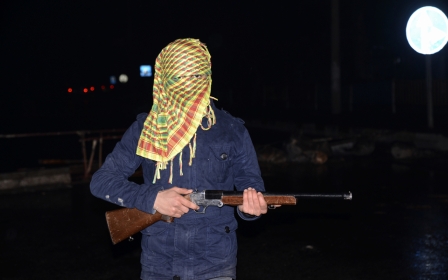How do you write an op-ed on Turkey in the Western media?

Here’s a handy set of guidelines for people who want to be an op-ed author on Turkish policy for the Western media. If you follow these steps while writing, many editorial boards will surely bend over backwards to publish your article:
Democracy is losing in Turkey
One of the most important points for the Western media’s Turkish op-eds is to mention "authoritarian" and "Erdogan" together in the same sentence. For instance, you can begin with these sentences: "Turkey under President Erdogan has become increasingly authoritarian. He has no tolerance for political opposition or public protest." If you want to give historical background, you can refer to the success of the ruling Justice and Development Party (AKP) in the early 2000s, when a reformist agenda, especially on Turkey-EU relations, was more prominent.
You should emphasize worries about "secular lifestyles", which are also under pressure from "religious government". You can also add how non-Muslim minorities live under threat from the AKP government as never before in Turkey since 1923. Even though the AKP government reopened the Edirne Synagogue and offered condolences for the Armenian Genocide for the first time in the Turkish Republic’s history, these developments will be ignored by the editorial board. Don’t worry.
As a typical op-ed writer, you need to mention the EU and US administrations’ worries about freedom of the press in Turkey.
The AKP ended the ceasefire
Even though the KCK (Group of Communities in Kurdistan), an organisation founded by the Kurdistan Workers’ Party (PKK), declared the end of the peace process multiple times before the 7 June election, you should insist that the ceasefire was ended by the Turkish state or the AKP government.
You can add that the AKP also kills civilians in Turkey’s Kurdish regions, forces them to flee from their homes, and orders curfews. After you give information about the AKP’s nightmarish policies in the Kurdish regions, the AKP will seem to be the sole actor responsible for human rights violations in southeastern Turkey. In order to reinforce your argument about the Kurdish issue, you can quote from some "liberal" journalists who have an Erdogan obsession and provide some statistics from the Turkish Human Rights Association (IHD).
At the end of this part, your readers will be convinced that the AKP is the worst government ever for Kurds in Turkey’s history, and the PKK will not appear like a militant organization which has kept up an armed struggle against Turkey since 1984.
Fethullah Gullen is just a religious spiritual leader
The Fethullah Gullen movement has a large network in the US. So, it can be good for your article if you criticise the Turkish government’s attitude towards the Gullen Movement. However, you need to omit information about the Gulenists’ security forces’ and prosecutors’ operations on 17-25 December 2013. You should insist that these operations aimed only to expose corruption scandals, but Erdogan and the AKP government suppressed this scandal. So, you can conclude this part by writing that the rule of law has been undermined in Turkey and that the Gulen movement never ever had a hidden political agenda.
Turkey has a sectarian foreign policy
Turkish foreign policy is one of the major topics of criticism that you need to add to your op-ed. You can begin with Turkey’s Syria policy, including that Turkey is arming fundamentalist Islamic groups and has been unwilling to fight the so-called Islamic State (IS) militants (no, you do not need to show any evidence in order to prove your claims – they will be taken at face value). Don’t forget to mention that Turkey is bombing "Kurds" in Northern Syria and emphasise that Turkey needs to use its power to battle IS instead of "Kurds".
Such generalisations make your article more valuable for the editors, so you should write "Syrian Kurds" instead of the "PYD" and Turkey’s Kurds instead of the "PKK". If you’re lucky, your readers won’t google recent suicide attacks which PKK fighters trained in the YPG’s (the PYD’s armed wing) camps carried out. For the conclusion, the EU can be criticised for the refugee deal with Turkey. You can remind readers of the EU’s values and principles and criticise European countries for turning a blind eye to human rights violations in Turkey.
Lastly, if you prefer one of Erdogan’s angry photos for the op-ed, your article will be sure to catch readers’ eyes easily and be more persuasive.
-Enes Callı is a freelance writer graduated from the Department of Political Science at Kocaeli University in 2012, Turkey. He is currently studying an MA in International Relations at Bilgi University, Istanbul. You can follow him on Twitter @enescalli1. This article originally appeared under the title "How do you write an op-ed on Turkey for the NYT?" in the website TheKebabAndCamel.com.
The views expressed in this article belong to the author and do not necessarily reflect the editorial policy of Middle East Eye.
Photo: Pedestrians walk by stacks of newspapers in New York City, the United States, on 12 January 2007 (AFP).
Stay informed with MEE's newsletters
Sign up to get the latest alerts, insights and analysis, starting with Turkey Unpacked
Middle East Eye delivers independent and unrivalled coverage and analysis of the Middle East, North Africa and beyond. To learn more about republishing this content and the associated fees, please fill out this form. More about MEE can be found here.





